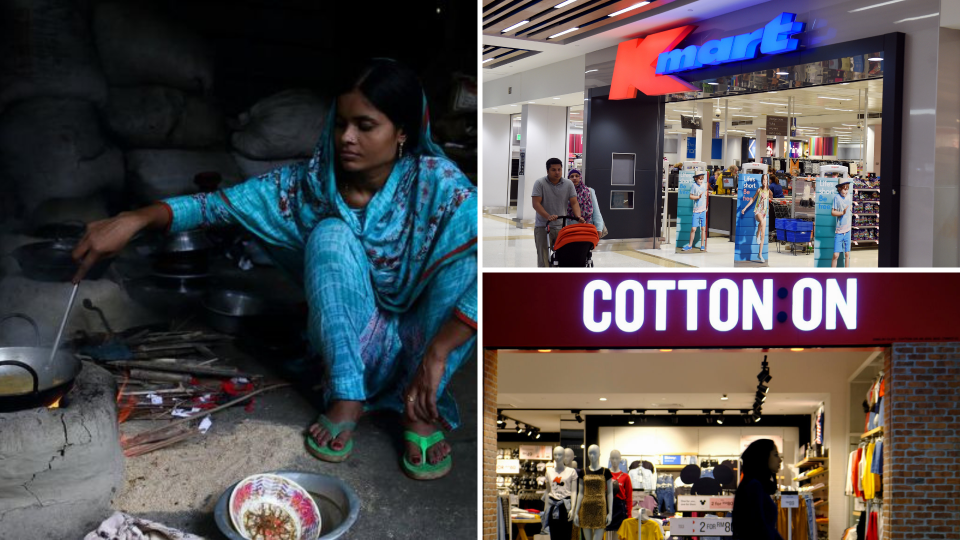"Systemic exploitation": The real cost of Australia's $23 billion fashion industry

The Australian fashion industry has been exposed for building their brand and profits off the back of a system that traps workers in a cycle of poverty and exploitation.
Research for Oxfam’s new report Made in Poverty involved interviewing hundreds of workers from Bangladesh and Vietnam that supplied clothes to Australian household names such as Big W, Kmart, Target, and Cotton On.
Australian companies, whose buying practices compel factory operators to reduce cost of production, has enabled “systemic exploitation”, the report reveals.
These buying practices include fierce price negotiation, short-term contracts with factories, and reducing delivery times at one end while imposing fines for not meeting those squeezed deadlines.
Research found that 100 and 99 per cent of Bangladeshi and Vietnamese workers respectively weren’t paid a living wage, and the majority couldn’t afford enough food for themselves and regularly skipped meals.
Most workers were also unable to afford medical treatment, had no running water in their homes, and were separated from their children due to lack of income.
Astoundingly, workers in both countries reported significant verbal abuse, with Bangladeshi workers reporting high levels of physical and sexual abuse.
Oxfam’ has labelled the findings an indictment on the fashion industry, which turned over $23 billion in Australia last year.
“The findings are shocking and the case studies harrowing,” says Oxfam chief executive Dr Helen Szoke.
“Brands are responsible for making credible commitments to ensure the payment of living wages to the workers making their clothes,” she said.
A previous Oxfam report, released in 2017, found paying living wages would add just one per cent on average to the retail price of a piece of clothing.
What life is like
Garment worker and mum Tania often cries alone when she isn’t busy making clothes for Australian fashion brands.
The 21-year-old, who works as a sewing operator in central Bangladesh, has been forced to send her daughter 250km away and visit her only twice a year in a bid to ensure the family’s survival on her meagre wage.
She is one of hundreds of garment workers in Bangladesh and Vietnam whose daily suffering has been revealed in the first in-depth exploration of their lives in the report.
In a number of cases in Vietnam, interviewees reported buyers insisted on the installation of automatic fire extinguishers for rooms where finished clothing was stored, but did not require the same for the sewing floors where hot machines could also ignite.
The majority survive on pulses, rice and potatoes, sometimes eating a mix of old, fermented rice with chilli to feel fuller throughout the day.
In Vietnam, wages are comparatively higher, yet seven out of 10 said their pay was not enough to meet their needs.
Altogether, 99 per cent of workers in Vietnam were not paid a living wage that would allow them to buy nutritious food, live in decent housing, send their children to school and get health care when they are sick.
Named and shamed
Ahead of the report’s release, Cotton On, Kmart, Target and City Chic announced credible commitments towards reaching a living wage for workers in their supply chains, Oxfam said in a statement on Monday.
Brands that have failed to do so include Myer, Best and Less, Bonds, Country Road, Forever New and Peter Alexander.
–with AAP
Make your money work with Yahoo Finance’s daily newsletter. Sign up here and stay on top of the latest money, news and tech news.
Now read: Here’s what the average Aussie earns per week – how do you stack up?
Now read: The gender pay gap in Australia has hit a new record low

 Yahoo Finance
Yahoo Finance 
